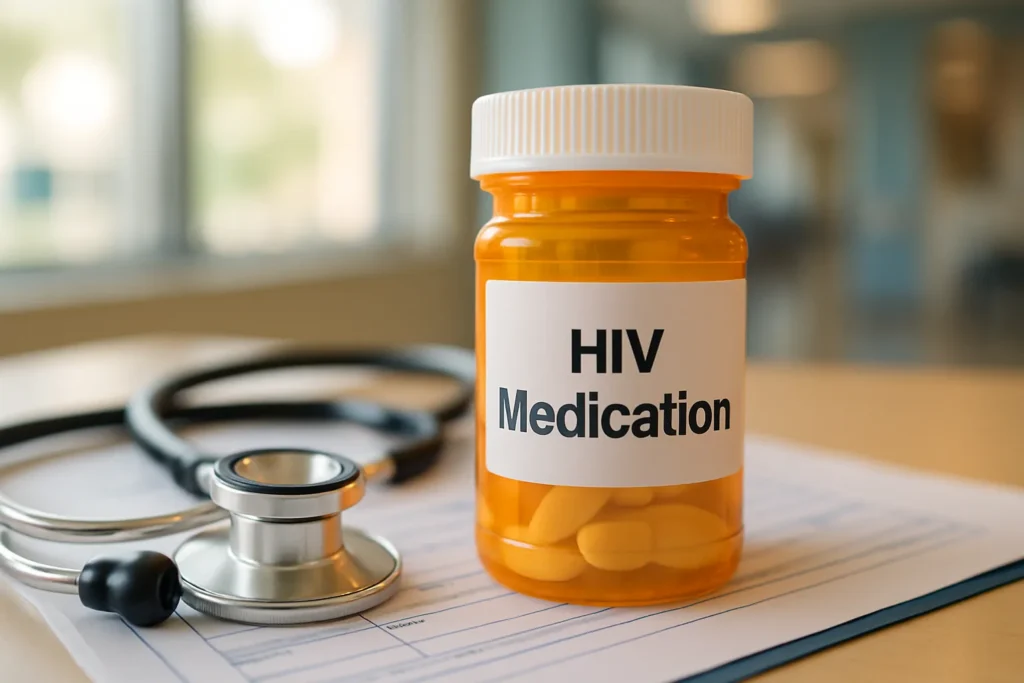When Healthcare Meets the Border: Idaho’s Harsh New Law
Imagine being told you’re not eligible for medication that keeps you alive—not because you can’t afford it, not because it’s unavailable, but because you can’t produce the right papers. For hundreds of Idahoans living with HIV, this is not a dystopian fantasy but the dire reality looming under House Bill 135, now the target of a sweeping federal lawsuit. On July 1, 2025, Idaho’s new law is slated to bar anyone unable to prove “lawful presence” from receiving crucial, federally funded benefits—including HIV medication, prenatal care, certain vaccines, and food aid programs.
The American Civil Liberties Union (ACLU) of Idaho, in concert with the National Immigration Law Center and private law firms, has launched a class-action lawsuit that paints the state’s approach as both callous and legally precarious. Their plaintiffs include Dr. Abby Davids and five immigrant Idahoans living with HIV who, along with hundreds like them, could face a wrenching choice: forego essential care or risk deportation by coming forward for help. Let’s call this what it is: a threat not just to undocumented individuals’ lives, but to the fabric of public health itself.
Before this law, Idaho followed basic public health and humanitarian best practices: services like food pantries, soup kitchens, maternal healthcare, vaccines, and HIV medications were accessible without a citizenship test. Now, those seeking care will be forced to navigate a bureaucratic gauntlet or give up care altogether. Who actually benefits from this clampdown on compassion?
Legal Showdown: Supremacy, Public Health, and the Human Cost
On paper, supporters defend HB 135 in fiscal terms: “We have to prioritize taxpayers and make sure our limited resources serve Idaho citizens,” says the bill’s sponsor, Rep. Jordan Redman. But a closer look reveals serious legal and moral flaws. The ACLU’s suit asserts the state—by imposing its own immigration verification rules on programs the federal government explicitly funds for all residents—runs afoul of several federal statutes, including the landmark Personal Responsibility and Work Opportunity Reconciliation Act and, critically, the Ryan White HIV/AIDS Program.
Congress established the Ryan White Program to deliver life-saving HIV treatment to anyone in need—regardless of legal status—because diseases don’t check green cards at the door. “The public should be protected from the spread of communicable diseases, and withholding treatment to those unable to prove their legal status is not only cruel, but extraordinarily dangerous and shortsighted,” warns Dr. Anne Sosin, public health expert at Dartmouth.
“Her medication is everything.”
That single line from the lawsuit echoes across the lived experiences of HIV patients who, thanks to medical advances, can now live long, healthy lives—if they have reliable access to antiretrovirals. The smallest bureaucratic hurdle can mean treatment interruptions and, per the CDC, even brief gaps in medication increase the risk of drug resistance and viral transmission. When fear keeps patients away from treatment, nobody wins; public health authorities have long stressed the opposite—making access as open, anonymous, and stigma-free as possible.
More troublingly, the law’s vague demand for “proof of lawful presence” sow confusion and anxiety not just among undocumented Idahoans, but among U.S.-born children in mixed-status families, DACA recipients, and asylum seekers—a point hammered home by the lawsuit. The ambiguity, as many legal scholars stress, could force healthcare and social service workers to act as de facto immigration enforcers, undermining trust, efficiency, and the very purpose of these services.
Bureaucracy vs. Humanity: Whose Interests Are Served?
Beyond that, this isn’t Idaho’s first dance with contentious immigration crackdowns. States like Arizona and Alabama attempted similar policies in the past, only to see their laws gutted or blocked by the courts for trampling on federal supremacy and jeopardizing public safety. According to Harvard Law professor Gerald Neuman, “Immigration enforcement is fundamentally a federal matter. When states inject their own schemes—especially around healthcare access—they risk violating the Constitution, but also basic decency.”
Legalities aside, the human consequences are staggering. A 2023 Pew Research study found that over 20% of Idaho’s undocumented residents live in mixed-status households, often blending U.S.-born children, legal residents, and those without status. Strip communal safety nets, and you don’t simply punish the undocumented; you destabilize families, burden hospitals, and fuel the spread of preventable disease. As the CDC and World Health Organization have repeatedly emphasized, controlling disease requires granting everyone access to prevention and treatment, regardless of paperwork.
So whose priorities does HB 135 actually serve? At its core, the law seems less about prudent resource stewardship and more about projecting a politics of exclusion. Research from the Kaiser Family Foundation indicates that immigrants—documented or otherwise—use public benefits at rates lower than native-born Americans. The cost to state budgets, in real terms, is minuscule compared to potential costs of untreated outbreaks or ER care.
Worse still, those who claim HB 135 is about fiscal discipline should answer: how much is Idaho willing to pay in human suffering, public health risk, and ultimately, legal fees for defending a law likely to fall upon judicial review? Even the Idaho Attorney General’s office, as of this writing, is proceeding with caution, “reviewing the complaint and pledging to respond as the facts unfold in court.”
From a compassionate, evidence-based perspective, the progressive case is clear: Healthy communities are built not on exclusion but access, not through fear but through solidarity. The real challenge isn’t just overturning a misguided law, but insisting Idaho—and the country it reflects—choose humanity over bureaucracy, every time lives are on the line.

